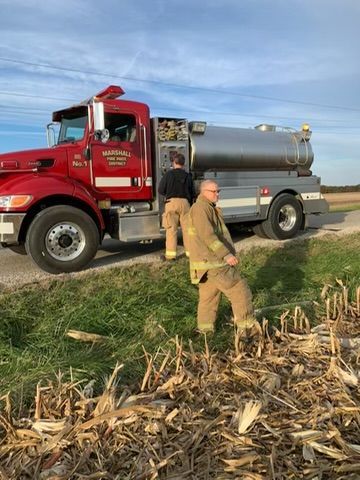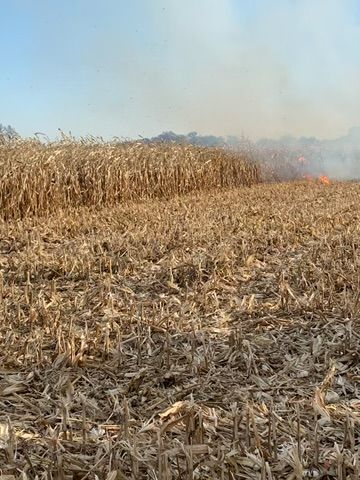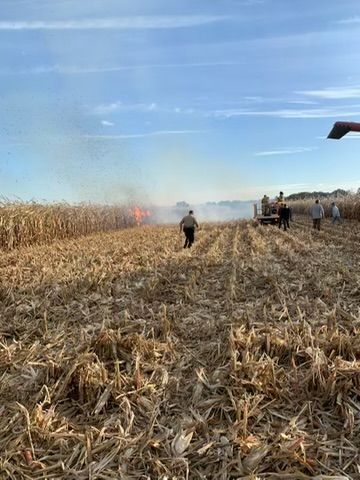Fire Safety During Harvest
How Farmers Can Protect Themselves, Their Equipment, and Their Crops from Wildfires
Wildfires can spark at any time, especially when crops are dry and rainfall is scarce. Fires cause millions of dollars in property damage, including machinery, crops, and time. Although, keeping farmers safe is always the top priority.
Modern combines are powerful machines, which means they can produce excessive amounts of heat. All it takes to start a fire is a high-temperature source to ignite a dry crop.
Prevention steps:
- Constantly check the engine temperature gauge
- Keep the machine clean, especially around the engine
- Frequently check air filters to help the engine run cooler and more efficiently
- Check coolant and oil levels daily
- Check pressurized oil supply line to the turbocharger for areas that rub and may start an oil leak
- The U.S. Drought Monitor has released data that parts of Illinois range from abnormally dry to severe drought
- Research from South Dakota State University suggests that if we have dry conditions and start experiencing wind speeds close to 30 mph and above, fires may be inevitable. During these periods producers should consider delaying harvest until evening hours when winds decrease or wait for precipitation. Higher humidity levels may also reduce the potential for field fires to spread.
- It is recommended to have two ABC-rated fire extinguishers on hand: a smaller 10-pound unit in the cab and a larger 20-pound extinguisher at ground level on the combine
- Ensure all emergency contacts are updated and shared with the harvest crew
Safety tips:
- Some newer combines have fire or heat sensors in the engine bay and will trigger an alarm
- In case of fire, turn off the engine, get away from the machine, and call 911
- Use fire extinguishers if it is safe to do
- Fires can double in size in less than a minute, embers can spread easily and start new fires
Create an emergency plan:
Harvest crews should discuss a plan for what to do in case of a fire. Discuss when they should put out the fire—shoveling dirt, using a fire extinguisher, flour, sand. If the fire is spreading quickly, it is too hot, and threatening safety, evacuate the area immediately.
Keep in mind that personal safety is far more important than property loss. Attempting to fight a fire should only happen after calling 911 and determining that it’s safe to do so. Fire prevention is possible; it just requires some regular maintenance and keeping equipment clean.











